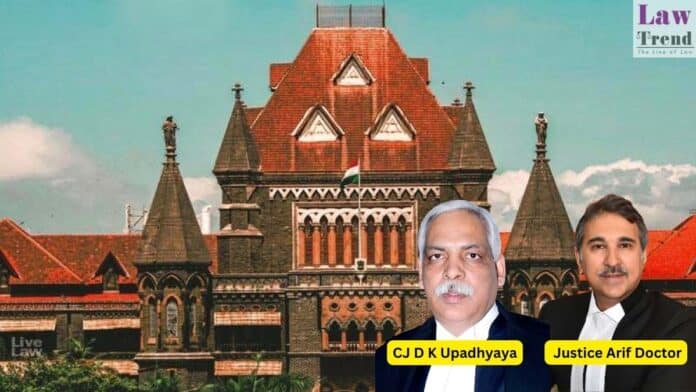The Bombay High Court on Tuesday said it cannot pass an order directing protection for a more than 200-year-old temple in south Mumbai, as the structure has not been declared an ancient monument of national importance by the Centre or Maharashtra government.
A division bench of Chief Justice D K Upadhyaya and Justice Arif Doctor, however, permitted four residents to file an application before the Centre or state government seeking to declare the temple site an ancient or heritage monument.
The court gave the residents a fortnight to apply and said once the application is filed, the authority shall decide on it within six months.
Until then, the court said the status quo shall be maintained at the temple site. However, if the petitioners do not file the application, then the status quo shall stand vacated.
Four residents had filed a plea expressing concern about the protection and preservation of the Vithal-Rukumai/Rukhmini Temple, at Girgaum in south Mumbai, claiming that it is an ancient temple, which is over 200 years old and needs to be protected as a monument of historical importance.
The bench in its order, however, said the temple in question has not been declared as an ancient monument of national importance by either the Central or the state governments.
“Hence, any direction as sought by the petitioners for protection and preservation of the site in question, in our opinion, would be impermissible,” the court said.
It noted that the temple has not been included in the list of heritage sites, precincts or places under the Development Control Regulations.
The bench, however, said after perusal of various documents submitted, a need has been felt to preserve the temple site.
“What startles the Court is that no efforts have been made by the petitioners to seek a declaration of the temple site either as a historical and ancient monument or its inclusion in the list of heritage buildings and heritage precincts,” the court said.
It said the petitioners could approach the appropriate authority in the Central government/state government/MCGM seeking a declaration of the temple site in question as an ancient and historical monument of national or state importance or for its inclusion in the list of heritage buildings and heritage precincts within a fortnight.
If the petitioners file any application, the authority shall decide within six months thereafter.
“We find it appropriate to direct that till decision under this order is taken by the authority/authorities concerned, the parties to the petition shall maintain status quo on the spot as it exists today,” the court said.
If the petitioners do not file such an application within the stipulated time, the status quo order shall stand vacated, it said.
The petitioners’ concern was that the plot where the temple is located had been purchased by some private persons who intended to carry out redevelopment work.
They sought direction to the state government and the Brihanmumbai Municipal Corporation to form an expert committee to inquire about the temple to protect the same.
Also Read
They also sought directions to stop all construction activities within a radius of 2 km of the temple, which may cause any damage or degeneration of the structure.
The bench, in its order, noted that as per an affidavit filed by the director of the Archaeological and Museum, State of Maharashtra, the temple has not been declared a protected monument and it has lost its historical and architectural context on account of renovation done by the residents in 2007.
The Archaeological Survey of India (ASI) in its affidavit said while it has not declared the temple as a monument of national importance, it supports safeguarding the temple and the idols kept on the premises.
The court, in its order, noted that Article 49 of the Constitution casts an obligation on the state to protect such monuments or places or objects to be of national importance from disfigurement, destruction, or spoliation, but that is only in relation to those which are declared as such by or under the law made by the Parliament.




